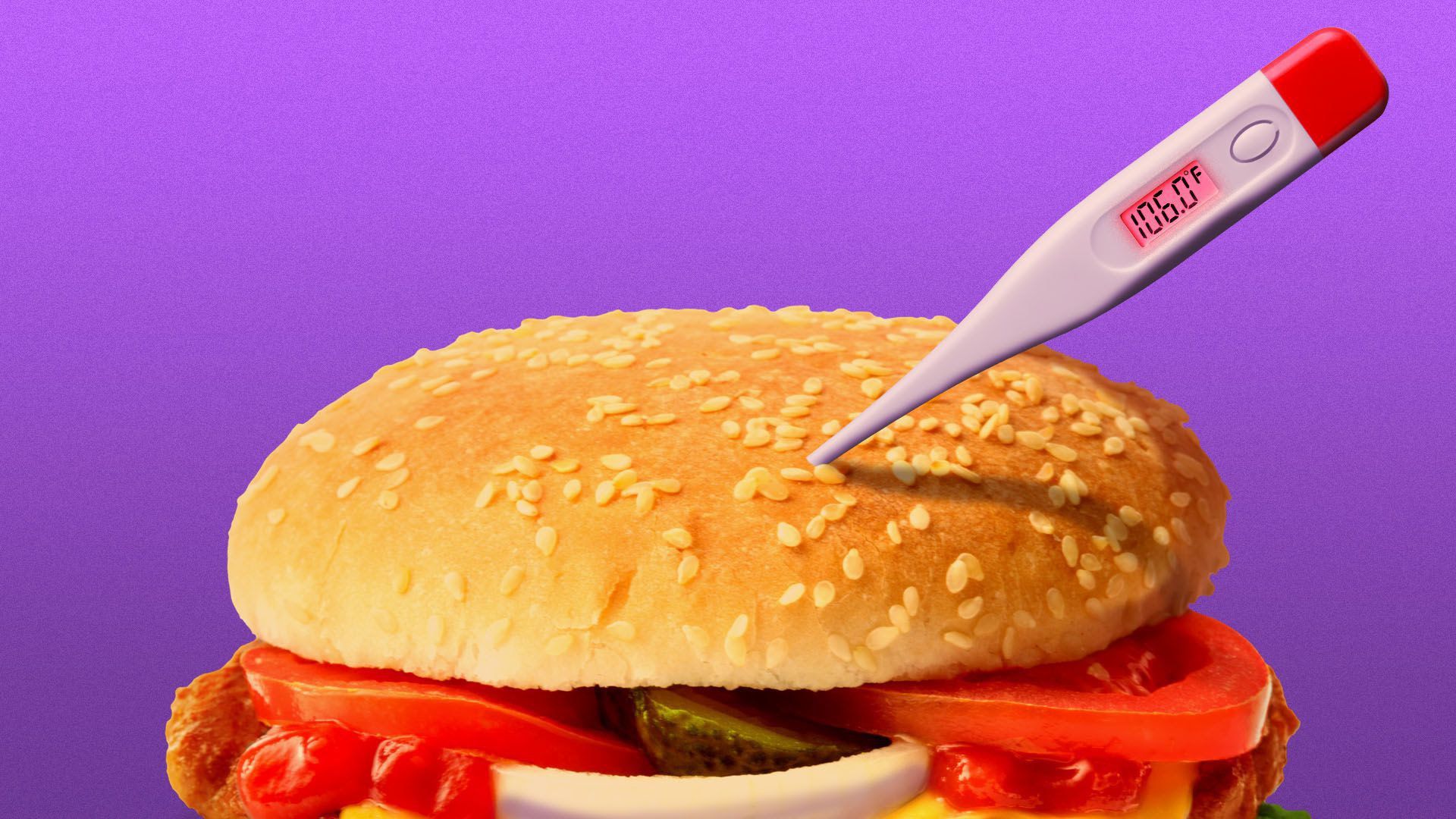How the American diet worsens COVID-19
Add Axios as your preferred source to
see more of our stories on Google.

Illustration: Sarah Grillo/Axios
Americans suffer from high levels of obesity — a disease that has made us more vulnerable to the coronavirus.
Why it matters: If the U.S. is going to make itself more resilient to the coronavirus, as well as other deadly health conditions, some experts argue we need to rethink the food system that has helped leave too many people dangerously overweight.
By the numbers: 42.4% of American adults had obesity as of 2018, up from 30.5% in 2000.
- A recent meta-analysis found people with obesity who contracted COVID-19 were 113% more likely than people of healthy weight to end up in the hospital, 74% more likely to be admitted to the ICU, and 48% more likely to die.
What they're saying: "It's clear that COVID-19 is connected to food," Nancy Roman, CEO of Michelle Obama's nonprofit Partnership for a Healthier America (PHA), told Axios.
- Roman argues the racial disparities seen in the pandemic are mirrored by unequal access to healthier food.
Still, Roman does see some positive shifts brought about by the pandemic, including the rapid growth of online grocery delivery.
- 45 states are participating in a USDA pilot program that allows people to use their food stamp benefits for online grocery purchases, which could help the more than 23 million Americans who live in food deserts find healthier produce.
- But Roman worries the shift to online buying will leave some Americans vulnerable to targeted ads for unhealthy food. "A person of means who likes to have a kale smoothie would be optimized for it, but a low-income person eating at McDonalds or Popeyes would be optimized for that," she says.
Of note: In May, PHA launched its COVID-19 Fresh Food Fund in Denver, working with the city and other partners to provide 600,000 servings of fresh fruit and vegetables over the following three months, with plans for another 1.2 million servings through the next six months.
The bottom line: COVID-19 and obesity represent a pandemic on top of an epidemic, and they both deserve attention.
